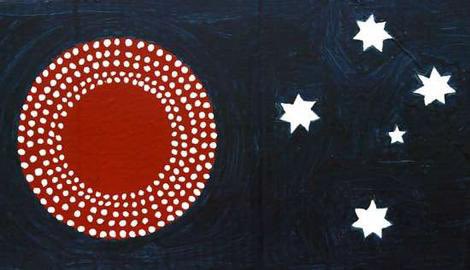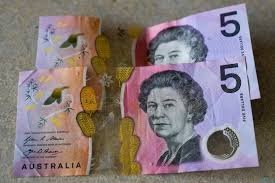I'm one of those descendants of transported convicts, as well as free settlers from England, Ireland and Scotland. I grew up believing that I was British but a trip to UK in 1985 showed me that I was not. I came home questioning what it is to be Australian because post WW II our population has grown to include many people from Europe and Asia. It has always included the indigenous people who never ceded sovereignty to the Crown.
Now that our much loved Queen Elizabeth has died, it is time to revisit the question of becoming a republic and when that happens we will need a new flag that does not feature the Union Jack. Canada already has such a flag. It is not a matter of disrespect; it is a matter of national identity and pride.
I rather like this design. I don't want to see something kitschy featuring a kangaroo or a boomerang.

How might becoming a Republic work for Australia? Just curious.
My understanding of a Republic (someone please correct me if I’m wrong, I’m not an expert on this), is a nation that has an elected ‘Head of State’. Without a head of state, it’s not a republic, I think.
Would Australia therefore have an elected president as head of state, and the powers that a President usually has, which would take some powers away from your long established elected Parliamentary Democracy. Are people in Australia willing to give up some powers of their collective members of Parliament, & give them to one person, a President?
Both France & Russia have a Parliament & President. One of those nations is relatively stable, the other isn’t. The USA has a President, but not a Parliament, and the USA is somewhat stable. Would Australia go the way of the USA, I wonder, and have no Parliament?
I believe the current situation, again please correct me if I’m wrong, is that King Charles III is Head of State of Australia, with no powers over its government. King Charles III does have a representative in Australia, in the form of the Governor-General who is Australian. ‘Chosen’ by the British monarch, but only ’chosen’ on the recommendation of the Australian Prime Minister. The Governor-General can only be changed on the recommendation of the Australian Prime Minister. The king can’t appoint or change the Governor-General without the Australian Prime Ministers say so, because in reality, the king has no power.
The British king is not involved in Australian politics. In a way then, isn’t the Governor-General the ‘acting’ Head of State of Australia, with no real influence from the king?
What might you think would be lost or gained if Australia rejected the King as head of state, a purely symbolic position? How might Australia’s political system then change?
I wonder, are there any Parliamentary Democracies around the world without a Head of State. In that situation, would the Prime Minister then become a kind of Head of State, with the additional powers that that might entail. Which then might be in conflict with the running of the elected Parlement.
If I were to actually think about it, I might be able to come up with a 100 more questions. Which a nation might have to address if it changes its political system. Anyway, just a thought.




